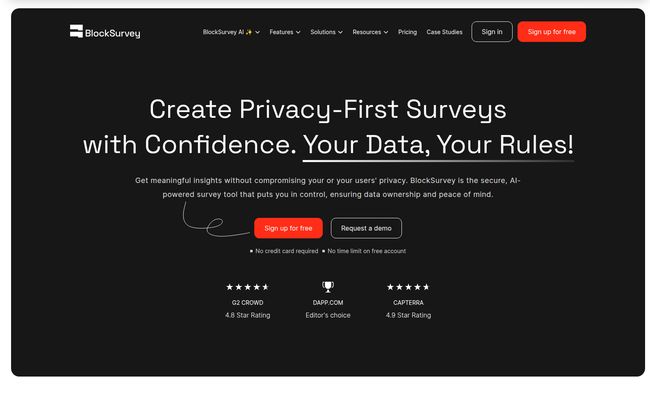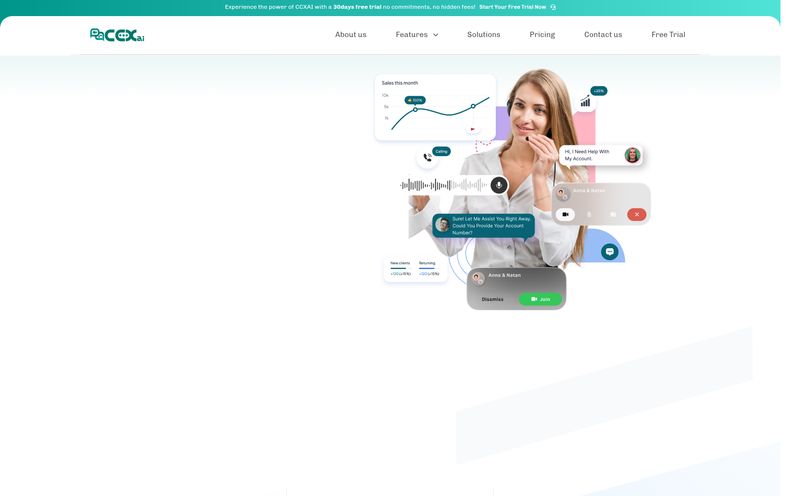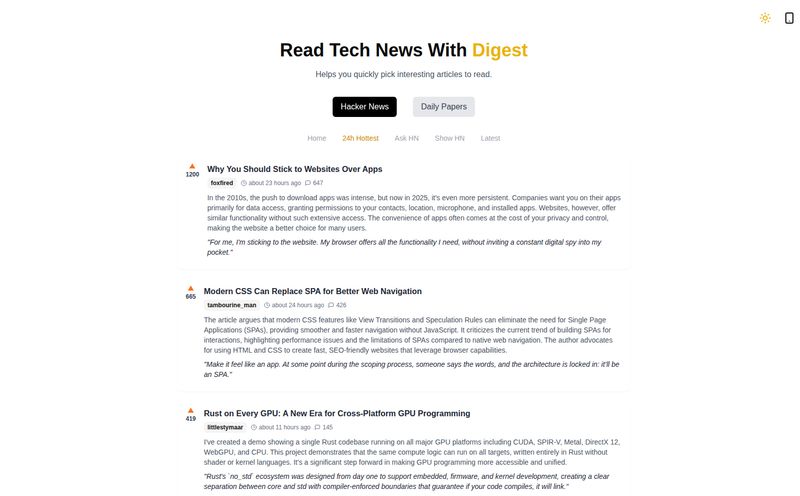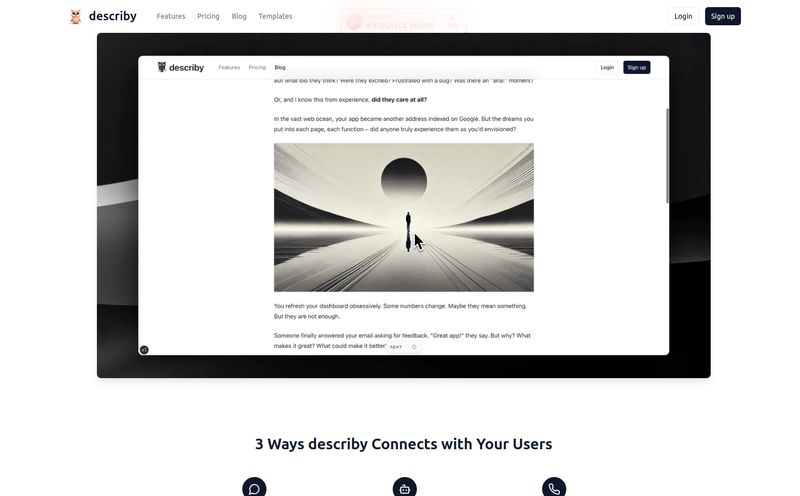In the world of SEO and digital marketing, data isn’t just king—it’s the entire kingdom, the currency, and the air we breathe. We live and die by the insights we gather. For years, that meant firing up the usual suspects: SurveyMonkey, Google Forms, Typeform. And for years, we’ve all had that nagging feeling in the back of our minds. Where is this data really going? Who has access to it?
I’ve run countless customer feedback surveys, market research questionnaires, and simple contact forms. And every time I hit ‘send’, I’m essentially handing over my audience's data to a third-party platform, crossing my fingers and hoping for the best. It feels… leaky. After the Cambridge Analytica scandal and the constant drumbeat of data breaches, just “hoping for the best” doesn’t cut it anymore. Not for me, and certainly not for our users.
That's the rabbit hole I was tumbling down when I stumbled upon BlockSurvey. The name itself was intriguing. 'Block' as in blockchain? A survey tool built on a decentralized network? My curiosity was definitely piqued. I decided to take it for a spin, and well, here we are. This isn’t just another review; it’s a report from the front lines of what might be a major shift in how we handle data.

Visit BlockSurvey
So, What Even is BlockSurvey? (And Why Should You Care?)
At its core, BlockSurvey is an AI-powered survey and form builder. Okay, so far, so familiar. But here’s the kicker: it’s built with a “privacy-first” philosophy from the ground up, using blockchain technology to secure your data.
Forget the crypto-bro hype for a moment. Think of blockchain here as a digital fortress for your data. Instead of storing everything on a central server that’s a juicy target for hackers, BlockSurvey uses Blockstack’s (now Stacks) technology to give you, the creator, the keys to your own data. The data is end-to-end encrypted. This means from the moment a user hits submit, to the moment you view the results, its' locked in a way that not even the folks at BlockSurvey can peek inside. Your Data, Your Rules. It’s a simple promise, but in 2024, it’s a radical one.
My Favorite BlockSurvey Features (The Good Stuff)
Alright, so the security is top-notch. But a tool can be as secure as Fort Knox; if it's a pain to use, nobody will. I was pleasantly surprised to find that BlockSurvey is actually... really good? Here are a few things that stood out to me.
The AI is Surprisingly Smart
I’m always skeptical of “AI-powered” anything. It’s often just a marketing buzzword slapped onto a basic template generator. But BlockSurvey’s AI for survey creation is genuinely useful. You can feed it a simple prompt like, “Create a customer satisfaction survey for a SaaS company,” and it spits out a solid starting point with relevant questions. It’s not perfect, but it shaves off a good 20-30 minutes of brainstorming, which is a win in my book. The AI-driven data analysis is even more impressive, pulling out sentiments and key themes from open-ended responses. It’s like having a junior data analyst on call 24/7.
Stepping into Web3 with Token-Gated Surveys
This is where things get really interesting for those of us in niche communities. BlockSurvey allows you to create “token-gated” surveys. In plain English, you can make a survey accessible only to people who hold a specific NFT or cryptocurrency token in their digital wallet. This is a game-changer for DAOs, NFT projects, or any brand building a community in the Web3 space. Want to poll your actual NFT holders about the project’s future? Easy. Need to send a feedback form exclusively to members of your social club who hold a membership token? Done. It’s a brilliant way to ensure you’re getting feedback from the right people, without them having to dox themselves.
Making It Your Own (Branding and Customization)
On the higher-tier plans, you can completely remove BlockSurvey’s branding, add your own logo, and even host the surveys on a custom domain (like surveys.mycoolbrand.com). This is table stakes for any serious business. It maintains a professional look and builds trust with your audience. It's a small detail, but it shows they understand what businesses need.
How BlockSurvey Stacks Up Against the Old Guard
How does it compare to something like SurveyMonkey or Typeform? It’s a different beast altogether. While traditional tools might win on the sheer number of obscure integrations, BlockSurvey wins on what matters most today: privacy and ownership. It’s a trade-off between a sprawling feature set and a focused, secure experience.
"Traditional survey tools rent you space on their server. BlockSurvey gives you the keys to your own private, encrypted vault."
If you need to be HIPAA compliant for healthcare data or strictly adhere to GDPR, BlockSurvey is built for that. Many older platforms have had to awkwardly bolt on these compliance features, but here, it's part of the DNA. For sensitive research, employee feedback, or patient intake forms, I wouldn’t even consider using anything else at this point.
Let's Talk Money: A Look at BlockSurvey's Pricing
Okay, let's get down to brass tacks. Is this going to break the bank? Here’s my take on their pricing tiers:
- Free ($0/mo): This is your test drive. You get 3 surveys and only 10 responses a year. It's not for actual use, but it’s perfect for poking around and seeing if you like the interface before committing.
- Standard ($24/mo): This is the sweet spot for small businesses, freelancers, and marketers. You get unlimited surveys, 6,000 responses a year, and the core AI features. It’s a fantastic value.
- Premium ($40/mo): For my money, this is where it gets serious. You get a huge bump in responses (36,000/year), and you can add your own branding and use a custom domain. If you're client-facing, this is the plan to get.
- Team ($55/mo): This plan adds advanced analytics like NPS scores, sentiment analysis, and the killer token-gating feature. It also gets you HIPAA and GDPR compliance documentation. Perfect for marketing teams, healthcare providers, and Web3 projects.
- Enterprise ($449/mo): The full shebang for large organizations. White labeling, SSO, priority support—all the big company stuff.
The pricing feels fair for the value, especially when you consider the cost of a potential data breach. You can check out the full breakdown on their pricing page.
The Not-So-Perfect Parts (An Honest Look)
No tool is perfect, and it would be dishonest to pretend BlockSurvey is. First, the term 'blockchain' can be intimidating. While you absolutely do not need to understand how it works to use the platform, it might be a hurdle for less tech-savvy team members. There's a slight conceptual learning curve there.
Second, while the feature set is robust, it might lack a super-niche integration that a legacy platform has from its decade-plus of existence. And finally, its security is tied to the Stacks blockchain. While Stacks is a reputable project, you are putting your eggs in that specific technological basket. For 99% of users, this is a non-issue, but for the decentralization purists, it’s a point to consider.
My Final Verdict: Is BlockSurvey Worth Switching For?
So, should you ditch your current survey tool for BlockSurvey?
If you're just creating fun, low-stakes quizzes for your blog, maybe not. The tools you already use are probably fine. But if you handle any kind of sensitive information—customer feedback, employee data, patient info, proprietary market research—then my answer is a resounding yes.
BlockSurvey isn't just a survey tool; it's a statement. It's a way of telling your audience that you respect their privacy. In an age of digital distrust, that's one of the most powerful marketing messages you can send. It represents a move toward a more ethical, user-centric way of collecting data. And for me, that's not just a nice feature, it's the future.
Frequently Asked Questions about BlockSurvey
- Do I need to know about blockchain or crypto to use BlockSurvey?
- Absolutely not. The blockchain part works silently in the background to secure your data. From a user's perspective, it feels just like any other modern, clean survey tool. You don't need a digital wallet or any crypto knowledge to create or answer surveys (unless you're using the specific token-gating feature).
- Is BlockSurvey truly anonymous for respondents?
- Yes, it can be. It provides a layer of anonymity by default because it doesn't track IPs or use cookies like many other platforms. As the survey creator, you can choose to collect personal information if you need it, but the platform itself is designed to protect respondent identity.
- How does BlockSurvey's AI actually help?
- The AI works in two main ways. First, it helps you create surveys faster by generating relevant questions based on a simple prompt. Second, it analyzes the text-based answers you receive, identifying key themes, sentiment (positive, negative, neutral), and trends. This saves a ton of time on manual analysis.
- Can I use my own branding on BlockSurvey surveys?
- Yes, you can. The Premium, Team, and Enterprise plans allow you to remove all BlockSurvey branding, add your own logo and colors, and even host the survey on a custom subdomain of your website for a completely white-labeled experience.
- Is BlockSurvey compliant with regulations like GDPR and HIPAA?
- Yes. BlockSurvey is designed with privacy regulations in mind. The Team and Enterprise plans offer specific compliance features, including issuing a Data Processing Addendum (DPA) for GDPR and a Business Associate Agreement (BAA) for HIPAA, making it suitable for use in healthcare and for handling data from European citizens.
- What is token-gating and who is it for?
- Token-gating is a Web3 feature that restricts survey access to people who own a specific cryptocurrency or NFT. It's ideal for crypto projects, DAOs, or brands with a tokenized community who want to survey their verified members exclusively.
Wrapping It All Up
Look, the digital landscape is littered with tools that promise to make our lives easier. Few of them, however, also promise to make the internet a safer, more private place for our users. BlockSurvey is trying to do both. It’s a well-designed, powerful tool that addresses one of the most pressing issues of our time. It’s a breath of fresh, encrypted air, and I’m definitely keeping it in my toolkit.



